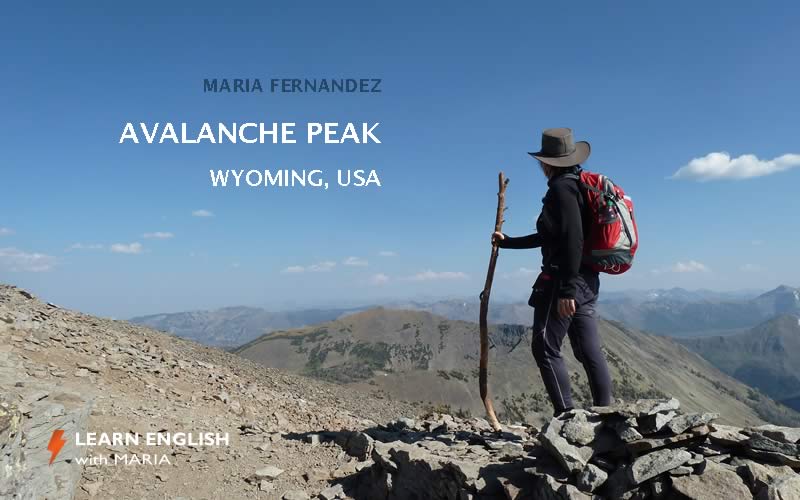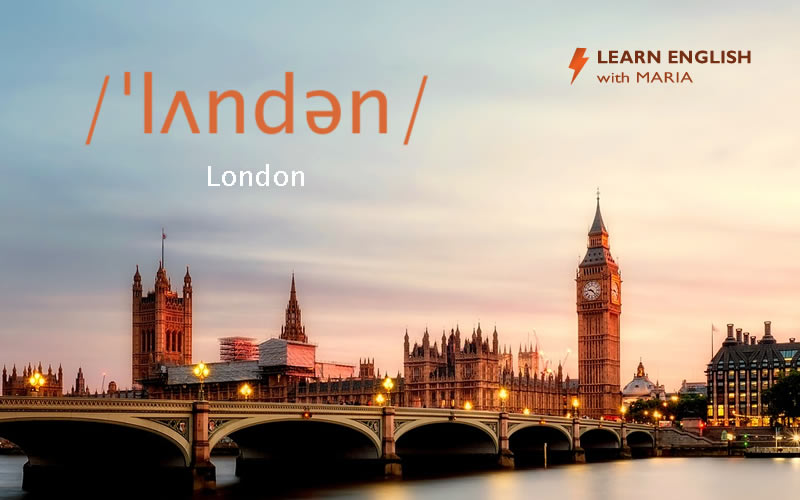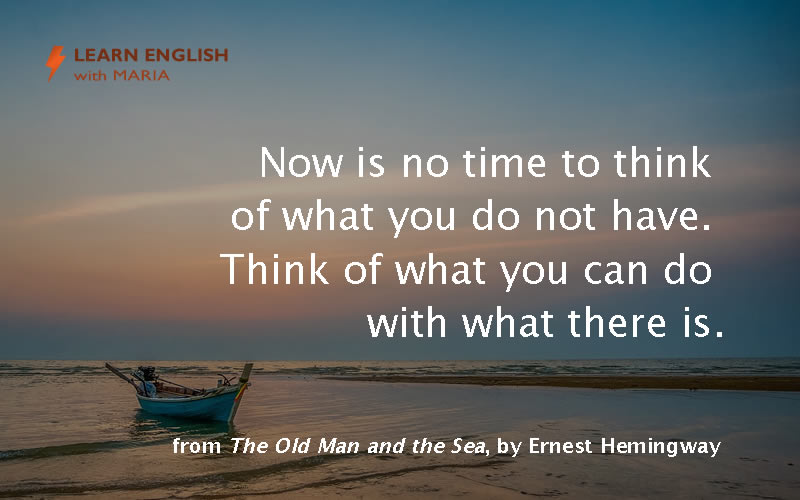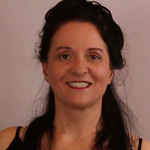
Today I want to talk to you about my journey to English fluency.
The story I’m about to tell you shows you how I had to learn English the hard way, just like you, mostly with courses and teachers.
I didn’t have an English-speaking parent, and I didn’t go to an English school. But what I did have was the determination to learn as much English as I could.
Here’s my story:
Have you ever seen your dreams come true?
As a child, I fell in love with travelling. I dreamt of going to faraway* countries, meeting fascinating people, and seeing wonderful places.
But, above all, I dreamt of speaking in foreign languages in those wonderful places.
To escape from my Spanish-only world, I would stand in front of the mirror and pretend to talk in English. Only, it wasn’t English at all, just some silly* sounds I’d invented.
In my young mind I kept wishing I could speak English.
SEE ALSO: Maria’s English courses.
I knew it wouldn’t be an easy task*. If all I had was my school lessons, becoming fluent in English was going to take me two lifetimes.
But “it’s impossible” wasn’t an answer I was willing to accept, because I wasn’t going to let go of* my dream. Ever.
So I decided to embark on* my own English learning journey.

My journey to English fluency
Learning English has taken me to the most amazing* places, and has allowed me to live a wonderful life.
Thanks to my dad.
He was the one who set the ball rolling* when he bought that irresistible English course.
I simply loved those lessons where you followed Mr Smith, the main character, from his London home to his office. You heard him talk to his clients on the phone, shared his lunch, and went to the pub with him.
Every evening, after school, I’d go to places with Mr Smith without leaving my bedroom.
That course was thrilling* and totally addictive.
I didn’t know it then, but I had just discovered the secret to mastering a language: I’d made my English lessons an essential part of my life.
[click_to_tweet tweet=”The secret to mastering English is to make your lessons an essential part of your life. #LearnEnglish” quote=”The secret to mastering English is to make your lessons an essential part of your life.”]
What made it even more exiting was that my sister got hooked* too, and mum.
I’m sure to the outside world we looked like a bunch of nutters*, but to us it was a window to a new world.
Nothing great was ever achieved without enthusiasm.
Ralph Waldo Emerson
Learning English with Mr Collins
Because of their work as academics*, mum and dad needed to keep up their English. So, over the years, we had a number of private tutors; some were great, others less so.
The one I liked best was Mr Collins, who reminded me of my fictional Mr Smith.
Mr Collins was polite, clever and impossibly patient. I must have been about twelve when he first came to our flat in Madrid.
I remember I was sitting next to him at the study table. He took out a little book full of humorous stories, and asked me to read one out* to him. I shook my head.
– “No way*. I’d rather die than speak English in front of him”, I thought. In Spanish.
He smiled and read it out loud himself.
From what I remember he didn’t speak much Spanish. He’d talk to me in English and I had no trouble understanding him. But for several weeks I didn’t open my mouth, I just listened.
Eventually dad said that perhaps those English lessons weren’t such a good idea after all. Perhaps he should ask Mr Collins not to come back anymore.
That’s when I started reading the stories to my patient tutor. It was hard, but not as hard as saying goodbye to my English lessons.
PLAY: Play Maria’s free English pronunciation lesson.
Travelling to England for the first time
It was around that time that my parents decided we should all put our English to the test*. So, for two summers in a row*, the five of us got in the car and drove from Madrid to Folkestone, in the south of England.
We visited London and Canterbury, went to the beach, bought English toys, drank fresh milk, stared at the bobbies*, and practised our broken* English with the locals.

Then, over the years, there were other teachers and language courses. But what I remember most vividly is sitting down for hours in my room, learning on my own.
I still had such a long way to go. There were so many things I couldn’t do in English.
Literature was my true passion, but reading my favourite books in another language felt like a distant dream.
And then, one year at school, my English teacher encouraged me to read an abridged* version of A Tale of Two Cities, the Dickens novel.
Reading a whole book in English was a magical experience, even if it was abridged.
That was the first of more than a thousand books I’ve read in English ever since.
Reading books in English
I can clearly remember the first “real” English book I ever read.
Dad had a large bookcase in his home office. It was full of all kinds of titles, many of them in English. One day I decided to try one. I browsed* the shelves and picked The Great Gatsby, the 1925 novel by F. Scott Fitzgerald.
I’m afraid I didn’t choose it because it was a masterpiece*, I didn’t know that at the time. I chose it because it was only 150 pages long.
I’ve read The Great Gatsby on several occasions over the years, and I often wonder just how much I understood that first time. But what I do know is that its opening lines made me fall in love with English literature, and I’ve never looked back.
In my younger and more vulnerable years my father gave me some advice that I’ve been turning over in my mind ever since.
“Whenever you feel like criticizing any one,” he told me, “just remember that all the people in this world haven’t had the advantages that you’ve had.”
from The Great Gatsby, by F. Scott Fitzgerald
For me, those memorable lines are a poignant* reminder of the head start* I was given in life.
I was lucky to be born in a family that values education above everything else. Because with education comes knowledge, and with knowledge comes freedom. Freedom to live the life of your dreams.
When the time came to go to university, everyone assumed I’d do an English degree, but the syllabus* looked boring to me. So I chose History instead, and spent an unreasonable amount of time studying English between History lectures.
SEE ALSO: Maria’s English courses.
Soon I got curious about other languages. I started doing German and French. My sister was studying German too, and we often had our course recordings playing in the background in our bedrooms.
Mum would stand in the corridor, muttering* that our home seemed to have become the Tower of Babel. She didn’t sound unhappy about it, though.
My bus journey to uni* near the centre of Madrid often took a full hour, so I always made sure I had an English book with me: The Old Man and the Sea, Alice in Wonderland, Animal Farm, Strange Case of Dr Jekyll and Mr Hyde, The Third Man, Pride and Prejudice, Three Men in a Boat, Cat on a Hot Tin Roof, King Lear, Robinson Crusoe, To Kill a Mockingbird …
I read so many wonderful books on that bus.

When I think of those titles, I flip their pages in my mind and relive their stories. It’s like carrying a private library within me.
Moving to Scotland, my new home
When I finished my History degree, I applied* to the University of Edinburgh, in Scotland, to do a Master’s in English Literature.
After all those years studying English I was now going to spend twelve months of my life reading. Reading literature, the thing I love most; and reading it in English.
It was the biggest reward* I could dream of, and a magical year.
After finishing my Master’s degree I made two big decisions that I’ve never regretted.
First, I chose to stay in Edinburgh instead of going back to Madrid. And then I decided never to work for someone else. I wanted to be independent.
So, instead of looking for a job, I set up my own business as a translator and language teacher.
Translation turned out to be disappointingly dull*, and I soon dropped it. But I became passionate about teaching. For me, every new student is an opportunity to change someone’s life forever.
Over the years I’ve shifted* my language lessons from the real world to online. That has given me the freedom to travel the world with Simon, my English husband, a Professor in the Linguistics department at the University of Edinburgh.
We share a passion for language, cycling and hillwalking. Together we’ve been to faraway* countries, met fascinating people, and seen wonderful places.

When I look back, I see how the English language has opened a door for me to another universe.
It’s given me a different way of seeing people and the world; a different way of talking about human emotions, history, food, life, and even the weather. And, I hope, it’s made me a better person.
As I write this in English, I can feel how much richer my life has become with a second language. But I wouldn’t have got here on my own. My journey to fluency was made possible by Mr Collins and my other teachers.
And, just like they guided me, I now wish to guide you through your journey to English fluency.
Play Maria’s
free English pronunciation lesson
Do you know these 29 English words?
To help you expand your English vocabulary, here are the definitions of the 29 words I’ve marked in this post with an asterisk.
Most of those words have several meanings. Below I’ve given you the most relevant definitions for this post.
- to abridge: to shorten or contract by using fewer words, yet retaining the sense; to condense.
- academic: a member of an academy, college, or university.
- amazing: very wonderful.
- to apply: to make a request; to make an application; to solicit.
- bobby: a nickname for a policeman. From Sir Robert Peel, who remodelled the police force.
- broken: imperfectly spoken, as by a foreigner.
- to browse: to look leisurely at the goods displayed.
- dull: uninteresting; tedious; cheerless.
- to embark: to engage, enlist, or invest in any affair.
- faraway: distant; remote.
- a head start: an initial advantage in a competitive situation.
- hooked: devoted to, obsessed with.
- to let go of something: to release one’s hold on something.
- masterpiece: anything done or made with extraordinary skill; a supreme achievement.
- to mutter: to utter words indistinctly or with a low voice and lips partly closed.
- no way: never; under no circumstances; absolutely not.
- nutter: an insane person.
- poignant: affecting or moving the emotions.
- to put something to the test: to find out how useful or effective something is.
- to read something out: to read aloud.
- reward: that which is offered or given in return for some service or attainment.
- in a row: in succession; one after the other.
- to set the ball rolling: to initiate an action.
- to shift: to transfer from one place to another.
- silly: foolish; witless; simple.
- syllabus: an outline of the subjects of a course of lectures.
- task: any piece of work.
- thrilling: producing sudden, strong and deep excitement.
- uni: (colloquial) a university.
